Tiny Pets, Big Concerns: What Counts as an Emergency?
Bringing a puppy or kitten home is one of life’s greatest joys. From the zoomies to the late-night cuddles, their curiosity and energy light up your home. But as delightful as those first weeks are, young pets are also more fragile than they appear. A small symptom that might be manageable in an adult dog or cat can become life-threatening much faster in a growing puppy or kitten.
At Sonoran Sky Pet Hospital in Mesa, Arizona, we know how overwhelming it can feel to wonder: Is this an emergency, or am I overreacting? That’s why we offer urgent care, emergency services during open hours, and complimentary triage so you never have to make that decision alone. If you’re concerned, our team will quickly assess the seriousness of your pet’s condition and guide you on the next steps.
Why Emergencies Escalate Quickly in Puppies and Kittens
Puppies and kittens aren’t just miniature versions of adult pets. Their immune systems are still developing, their organs are less resilient, and their small size makes them more vulnerable to dehydration, shock, or toxin exposure. A few hours of vomiting that might inconvenience an adult pet could put a young puppy into a dangerous spiral of dehydration or diarrhea-related complications.
Early recognition is the key. If you’re ever unsure, it’s better to call and let us triage the situation than to wait and risk a worsening condition.
The Most Common Emergencies in Young Pets
While every puppy or kitten is different, there are recurring emergencies we see most often in our clinic. Becoming familiar with these can help you act fast when needed.
1. Infectious Diseases
- Canine parvovirus is one of the most serious threats to puppies. It spreads easily in the environment and causes bloody diarrhea, vomiting, dehydration, and weakness. Without prompt veterinary care, it is often fatal. Learn more in this parvovirus guide.
- Upper respiratory infections (URIs) are common in kittens, especially those recently adopted from shelters. Sneezing, nasal discharge, or watery eyes may seem minor, but they can progress to pneumonia without care.
Prevention tip: Staying on schedule with vaccines and avoiding high-risk environments (like dog parks before full vaccination) are the best safeguards.
2. Gastrointestinal Upset
- Vomiting and diarrhea are among the most common reasons puppies and kittens need urgent care. These can be triggered by parasites, dietary changes, stress, or viruses like parvo. Because dehydration sets in fast, persistent vomiting or diarrhea (especially with blood) always warrants a call.
- See Cornell’s resource on canine diarrhea for more context on causes and risks.
3. Breathing Problems
Breathing difficulties, whether from a congenital issue, infection, or a swallowed object, are always emergencies. Signs include open-mouth breathing, wheezing, pale or bluish gums, or gasping for air. Sometimes, choking is the culprit. Knowing the dog Heimlich maneuver can buy precious time, but pets with airway issues must be seen immediately.
4. Trauma and Injuries
Puppies and kittens are fearless explorers. That curiosity leads to falls, roughhousing with bigger pets, or even being stepped on accidentally. Trauma can cause obvious signs like limping or bleeding, but internal injuries are harder to see. A pet who hides, refuses to move, or collapses after an accident should be evaluated right away.
Our hospital offers diagnostic and urgent care services to quickly uncover what’s happening beneath the surface.
5. Toxin Ingestion
From chocolate to lilies to human medications, young pets love to chew and swallow things they shouldn’t. Even small doses can be deadly. The ASPCA Poison Control Center maintains a 24/7 hotline for pet owners who suspect poisoning. You can also review their toxic and non-toxic plant guide to safeguard your home.
Common culprits include:
- Chocolate, grapes, onions, garlic
- Household cleaners and rodenticide
- Pain relievers like ibuprofen or acetaminophen
- Toxic plants such as lilies, aloe, and sago palms
6. Seizures and Neurological Issues
Low blood sugar in small-breed puppies, toxin exposure, or congenital conditions can trigger seizures. Seeing your pet convulse is frightening, but it’s important not to panic. Move hazards out of the way, keep them on the floor, and call us as soon as the episode ends. Cornell offers a detailed guide to managing seizures.
7. Urinary and Reproductive Emergencies
A puppy or kitten who strains to urinate, cries out, or produces blood-tinged urine may have a blockage or infection. Left untreated, this can lead to kidney damage. Female pets may also experience complications related to their reproductive systems if unspayed.
8. Sudden Behavior or Appetite Changes
A playful kitten who suddenly hides or a puppy who refuses to eat is sending a message. Because young pets burn through energy reserves quickly, even a few skipped meals can cause dangerous drops in blood sugar. Learn more about home exams to help detect when “something’s off.”
Prevention: Setting Your Pet Up for Safety
You can’t prevent every accident, but proactive steps go a long way toward reducing risks:
- Pet-proof your home: Secure medications, food, and cleaning products. Keep cords, small toys, and toxic plants out of reach. AAHA’s pet-proofing guide offers a helpful checklist.
- Understand breed risks: Some breeds are more prone to emergencies, from brachycephalic dogs with airway issues to large-breed puppies at risk of bloat. Learn more in Pawlicy’s breed-specific risk guide and Forbes’ overview of high-risk dog breeds.
- Prepare a first-aid kit: Stock bandages, saline rinse, a digital thermometer, and keep emergency numbers handy. The American Red Cross offers pet first aid classes for extra peace of mind.
- Budget for care: Emergencies are stressful enough without financial strain. Consider pet insurance, read Pawlicy’s breakdown of options, and explore cost planning tools. For perspective, review average cat ownership costs and dog ownership costs.
What to Do in the Moment
When a crisis hits, every minute counts. Here’s how to stay calm and act effectively:
- Call for triage. At Sonoran Sky Pet Hospital, our urgent care team can help you decide whether to come in immediately.
- Collect key details. Note when symptoms started, what your pet ate or was exposed to, and whether they’ve had similar issues before.
- Bring evidence. Packaging, plants, or medications involved in poisoning help our team treat quickly.
- Ask questions. Once here, ask about diagnosis, treatment options, recovery steps, and whether the issue could recur.
For more guidance, review the ASPCA’s emergency care resource.
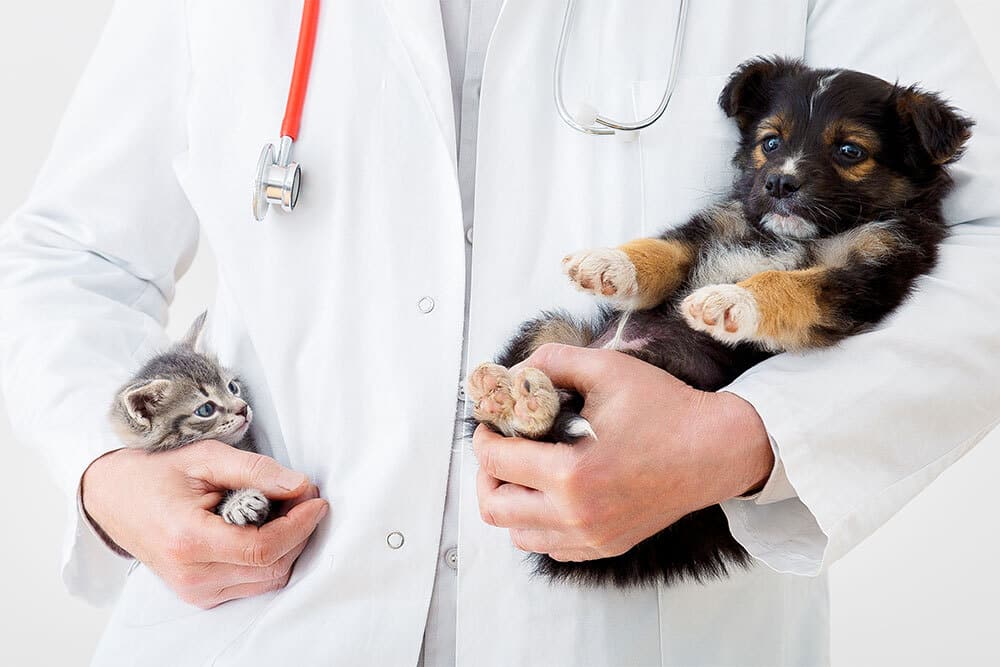
We’re Here When It Matters Most
Raising a puppy or kitten comes with its share of worries, but you don’t have to face them alone. At Sonoran Sky Pet Hospital, our team provides urgent and emergency care backed by complimentary triage services to ease your mind and protect your pet’s health.
If you ever feel unsure, trust your instincts– and trust us to help. Contact us today, learn more about our services, or schedule an appointment. With the right care and preparation, you can give your new pet the healthy start they deserve.

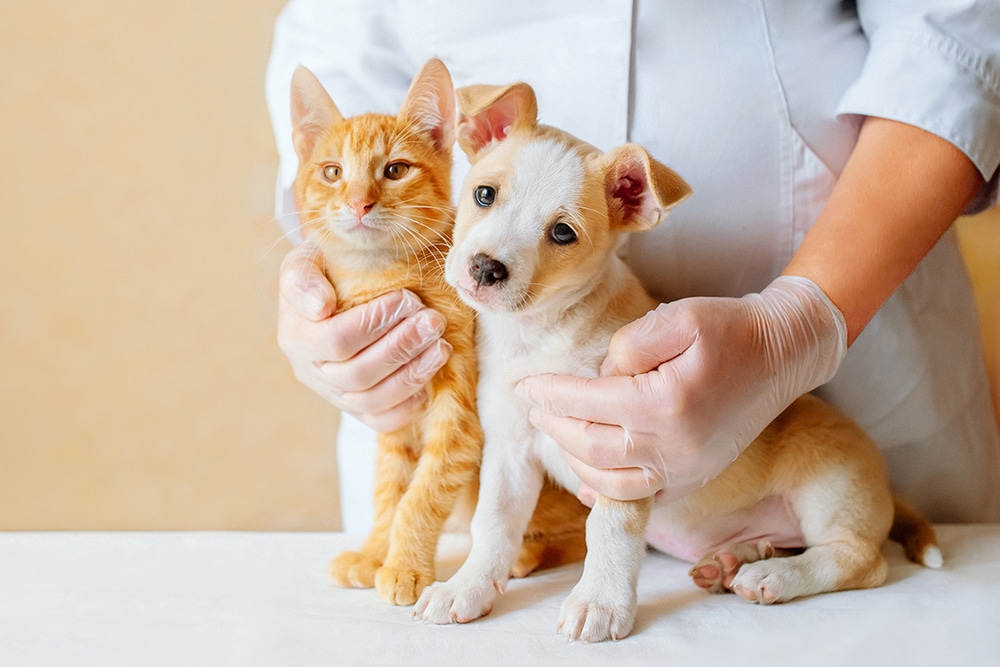

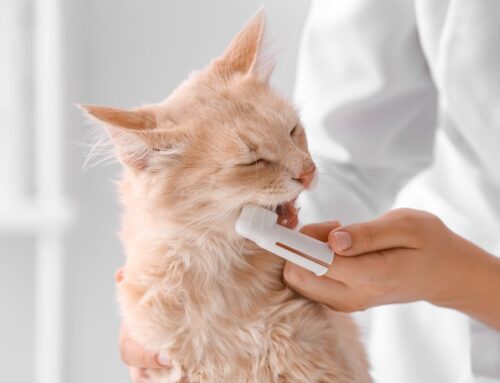
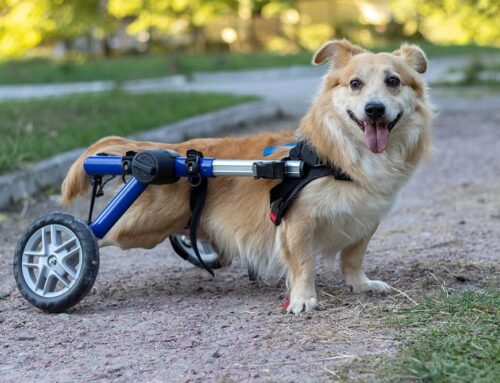
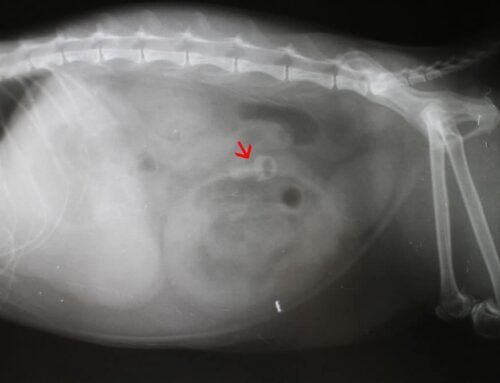



Leave A Comment